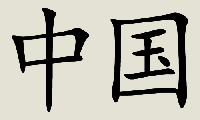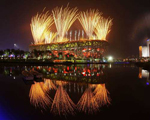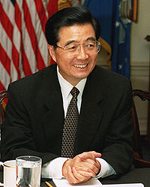China-Embassy.us
This site helps to expedite the legalization and certification of documents from the Embassy of China in Washington DC
this is![]() the official website of the embassy of china
the official website of the embassy of china
Customer Center
Address:1615 Bay Head Rd. Annapolis MD 21409
E-mail:china@china-embassy.us
(410) 349 - 4900
call us today
Disclaimer 
This website was created by
US Legalization to facilitate certifications
of documents intended for use in China.
US Legalization is not affiliated with the
Embassy of China in Washington DC.
Country name:
- Conventional long form: People's Republic of China
- Conventional short form: China
- Local long form: Zhonghua Renmin Gongheguo
- Local short form: Zhongguo
- Abbreviation: PRC
 Zhōngguó is a cultural region, an ancient civilization, and, depending on perspective, a national or multinational entity extending over a large area in East Asia.
Zhōngguó is a cultural region, an ancient civilization, and, depending on perspective, a national or multinational entity extending over a large area in East Asia.
Zhōngguó came to official use as an abbreviation for the Republic of China (Zhonghua Minguo) after the government's establishment in 1912. Since the People's Republic of China, established in 1949, now controls the great majority of the area encompassed within the traditional concept of "China", the People's Republic is the political unit most commonly identified with the abbreviated name Zhōngguó.
Capital:
- Name: Beijing
- Geographic coordinates: 39 55 N, 116 23 E
- Time difference: UTC+8 (13 hours ahead of Washington, DC during Standard Time)
- Note: despite its size, all of China falls within one time zone; many people in Xinjiang Province observe an
- unofficial "Xinjiang timezone" of UTC+6, two hours behind Beijing
 Beijing (pronounced /beɪˈdʒɪŋ/ or /beɪˈʒɪŋ/ in English; Chinese: 北京; pinyin: Běijīng, IPA: [pèɪtɕíŋ] (Speaker Icon.svg listen); Wade-Giles: Pei3ching1 or Pei3-ching1) (also known as Peking (/piːˈkɪŋ/ (Speaker Icon.svg listen) or /peɪˈkɪŋ/)) is a metropolis in northern China and the capital of the People's Republic of China. Governed as a municipality under direct administration of the central government, Beijing borders Hebei Province to the north, west, south, and for a small section in the east, and Tianjin Municipality to the southeast. Beijing is one of the Four Great Ancient Capitals of China.
Beijing (pronounced /beɪˈdʒɪŋ/ or /beɪˈʒɪŋ/ in English; Chinese: 北京; pinyin: Běijīng, IPA: [pèɪtɕíŋ] (Speaker Icon.svg listen); Wade-Giles: Pei3ching1 or Pei3-ching1) (also known as Peking (/piːˈkɪŋ/ (Speaker Icon.svg listen) or /peɪˈkɪŋ/)) is a metropolis in northern China and the capital of the People's Republic of China. Governed as a municipality under direct administration of the central government, Beijing borders Hebei Province to the north, west, south, and for a small section in the east, and Tianjin Municipality to the southeast. Beijing is one of the Four Great Ancient Capitals of China.
Political parties and leaders:
The last Chinese Civil War (with major combat ending in 1949) has resulted in two political entities:
People's Republic of China The People's Republic of China (PRC), commonly known as China, has control over mainland China and the largely self-governing territories of Hong Kong (since 1997) and Macau (since 1999).
Republic of China The Republic of China (ROC), commonly known as Taiwan, has control over the islands of Taiwan, Penghu, Kinmen, and Matsu.
 Since taking over as Party General Secretary at the Sixteenth National Congress of the Communist Party of China, Hu and his premier, Wen Jiabao, proposed to set up a Harmonious Society which aims at lessening the inequality and changing the style of the "GDP first and Welfare Second" policies. They focused on sectors of the Chinese population that have been left behind by the economic reform, and have taken a number of high profile trips to the poorer areas of China with the stated goal of understanding these areas better. Hu and Wen Jiabao have also attempted to move China away from a policy of favouring economic growth at all costs and toward a more balanced view of growth that includes factors in social inequality and environmental damage, including the use of the green gross domestic product in personnel decisions. Jiang's clique, however, maintained control in most developing areas, therefore Hu and Wen's measures of macroeconomic regulation faced great resistance.
Since taking over as Party General Secretary at the Sixteenth National Congress of the Communist Party of China, Hu and his premier, Wen Jiabao, proposed to set up a Harmonious Society which aims at lessening the inequality and changing the style of the "GDP first and Welfare Second" policies. They focused on sectors of the Chinese population that have been left behind by the economic reform, and have taken a number of high profile trips to the poorer areas of China with the stated goal of understanding these areas better. Hu and Wen Jiabao have also attempted to move China away from a policy of favouring economic growth at all costs and toward a more balanced view of growth that includes factors in social inequality and environmental damage, including the use of the green gross domestic product in personnel decisions. Jiang's clique, however, maintained control in most developing areas, therefore Hu and Wen's measures of macroeconomic regulation faced great resistance.